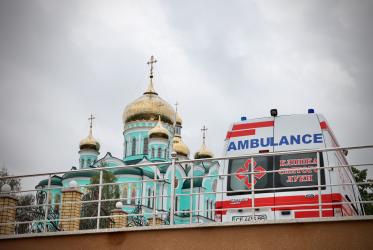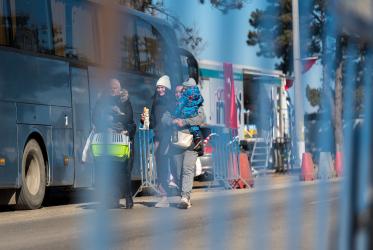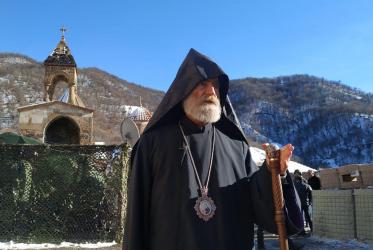Displaying 1 - 20 of 38
15 - 16 March 2024
Cittadella Laudato Si’ (known as “Cittadella”) – Via degli Ancaiani 3, Assisi
Ukraine: Responding to humanitarian need
08 September 2022
Monastery in Ukraine responds to the consequences of war
09 August 2022
WCC leaders recall life-changing experiences from early days
10 February 2022
Rethinking Ecological Relationships in the Anthropocene era
11 - 13 February 2021
















